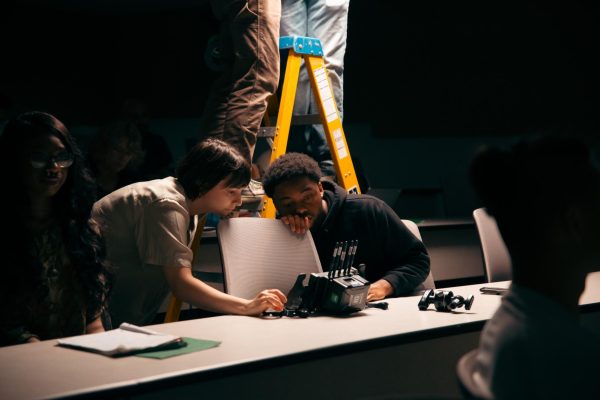LETTERS TO THE EDITOR
May 6, 2005
Good-bye and good riddance Teddy Harris
Dear Editor:
I am a junior here at Kent State, and in my time I have grown to despise Teddy Harris. Through the years, Mr. Harris has succeeded in creating the racism that he complains about in every article he writes. “How?” you ask when he has brought us such compelling articles like: “Affirmative action is necessary,” “Blacks do not separate from whites,” and my personal favorite, “African-Americans deserve reparations.” The only thing these articles have done is embed a stronger feeling of black and white in a society where the only way to get past racism is to look beyond the color of your skin.
I am not trying to say that there are not racist and prejudiced people in this world because there are. But, using fire to fight fire is never the solution. When you say that white people prejudice black people and then turn around and use prejudice against white people, it only creates animosity. From Mr. Harris’ latest article he said, “Whites in this country want blacks to ‘forgive and forget’ slavery, Jim Crow and severe discrimination at the same time they are all about the Jewish Holocaust and are quick to bring it up like it happened yesterday.” This is a gross generalization and is an extreme stereotype of white people. The fact of the matter is that if you were white and used a stereotype such as this one, you would be labeled a racist and your articles would never be printed. Also, in using this statement, Teddy must have forgot the article he wrote about slavery when he stated that “I believe this country should pay for my college tuition as reparations for this inhumane act toward my people.” He brings up slavery like it happened to him and happened yesterday, but wait, am I not allowed to say that because as Harris said, “It burns me to hear a ‘privileged white male’ complain …”
I do agree with one issue that Mr. Harris brought up in his latest article, and that is, “Racist people are all over the place here at Kent State.” These racists are not just white — they are black, yellow, green, brown and purple because no matter what color you are, if you judge people on their skin color, you are a racist.
Although I am glad to see you go, I wish you the best of luck, but the only way you will succeed in life is if you can rise above the racism. The blunt truth is that some people are black, some people are white and some people are every other color in between. Some people can get past that and some people cannot.
Adam Edwards
Junior integrated science major
It is important to look at all angles of the story
Dear Editor:
Last week, a story on end-of-semester parties was accompanied by two photos of the unrelated May 4 anti-war protest. Today, you ran a second article giving one side of the 2003 events as if it were unchallenged truth.
I share many of KSU Police Chief John Peach’s expectations for this week’s commemoration. But I take exception to his characterization of the 2003 demonstration. As a faculty observer who has spoken with the 2003 anti-war organizers, I find no convincing evidence that “a large number of people wanted to disrupt activities on campus…”
Certainly, the organizers hoped to have “a large march.” Those with whom I spoke, however, planned it to be peaceful. Moreover, May 4 that year was on Sunday. Consequently, there was little to disrupt on campus had anyone wished to do so.
You quote Peach as saying that the demonstrators “were told it was illegal to block traffic but did anyway.” In fact, the police had already blocked traffic long before the protesters reached the street.
As reported in your article, a number of protesters were arrested. The fact also is that in eight of the 14 cases, either charges were dropped or the accused were eventually acquitted. Those acquitted include the gentleman whose photo appeared in your front-page story. (Of the remaining six cases, five pled no contest to minor misdemeanor charges, and one is still on appeal.)
This is not a condemnation of the university police. I have generally found them to be helpful, cooperative and professional.
Richard Feinberg
Professor of anthropology and faculty senate observer























